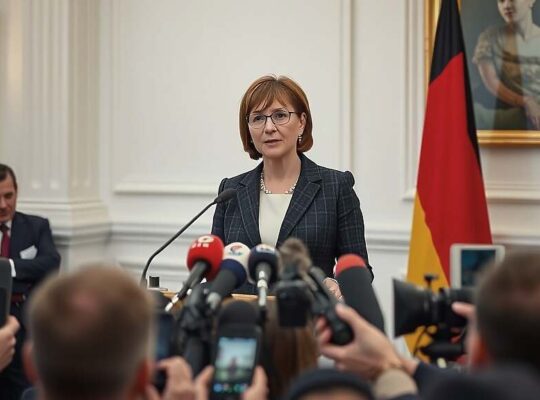The German government is advocating for adjustments to the upcoming European carbon pricing system, designed to encompass heating and transportation, in an effort to mitigate potential economic shocks and maintain unity among member states.
Speaking to the “Neue Osnabrücker Zeitung” (NOZ), Environment and Climate Protection Minister Carsten Schneider (SPD) emphasized the need for a measured approach. He stated that the carbon price would be most effective if it didn’t escalate too rapidly, providing citizens and businesses the necessary time and opportunity to transition to climate-friendly alternatives. Schneider’s priority, he said, is preventing price spikes and fostering cohesion within Europe.
A joint letter, signed by Germany and 15 other EU nations and reported by the NOZ, calls on the European Commission to urgently review additional safeguards against potential energy price volatility. Proposed measures include expanding a pre-agreed “market stability reserve” allowing for the distribution of more carbon allowances to temper price surges. A mechanism for setting an effective price ceiling is also under consideration.
The move has drawn criticism from within Germany. Wolfgang Steiger, General Secretary of the CDU’s Economic Council, sharply condemned the planned rule changes, arguing that weakening the emissions trading system would undermine climate protection efforts and render them financially unsustainable. He urged the planned implementation of the European emissions trading scheme for heating and mobility, warning that failure to do so would jeopardize both European and German climate goals.
Michael Pahle, a leading expert in Emissions Trading System (ETS) from the Potsdam Institute for Climate Impact Research (PIK), acknowledges compelling arguments in favor of implementing a price corridor. However, he cautioned against dilutions that could compromise the system’s efficacy. He warned that if the maximum price were determined through political maneuvering, it could be set so low as to be ineffective.
PIK researchers suggest establishing a new institution, analogous to a European Central Bank for carbon allowance trading. This independent body would be tasked with defining a reliable price corridor, ensuring its stability and credibility. Pahle argued that the benefits of such an institution are readily apparent.












